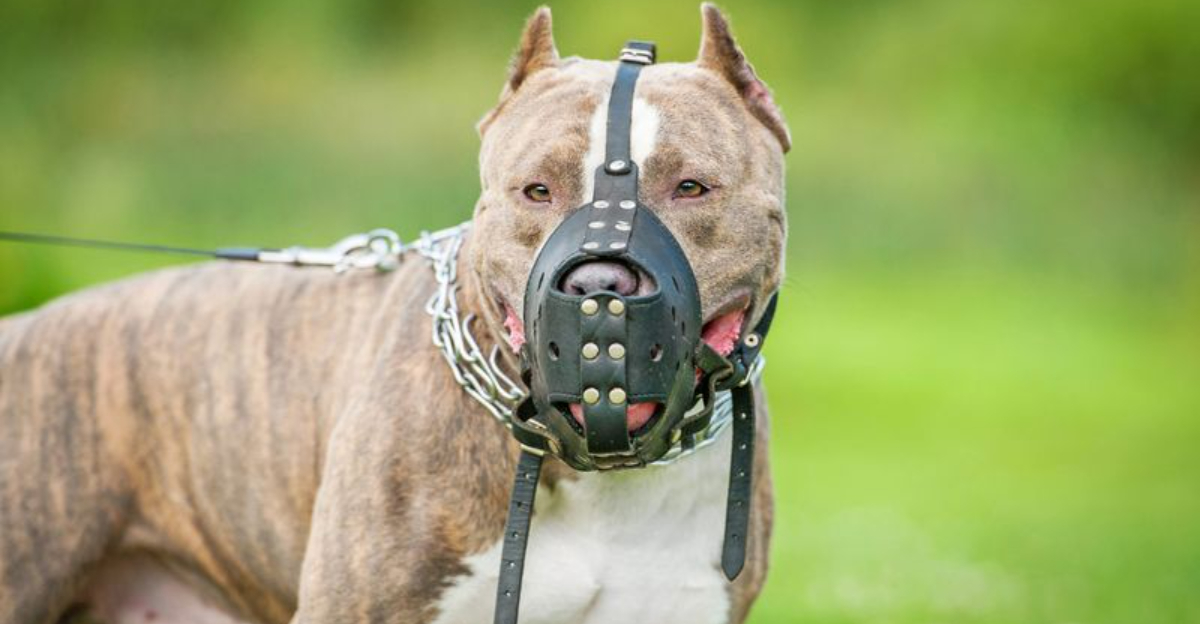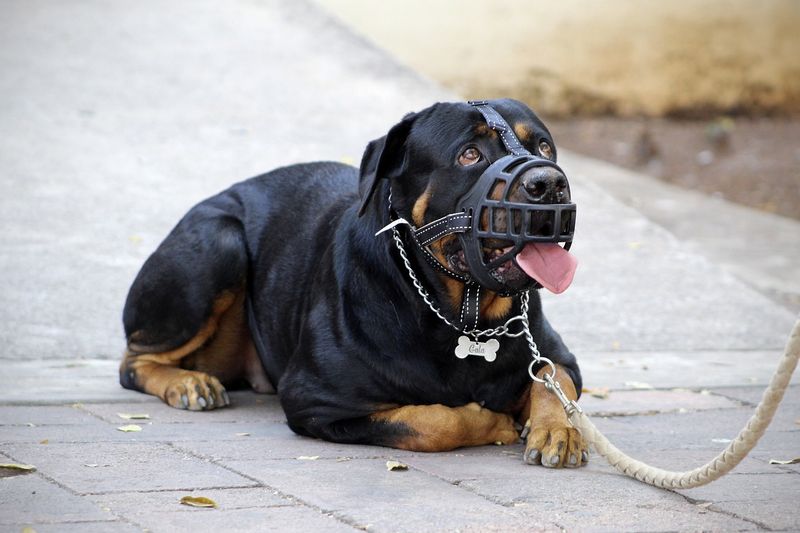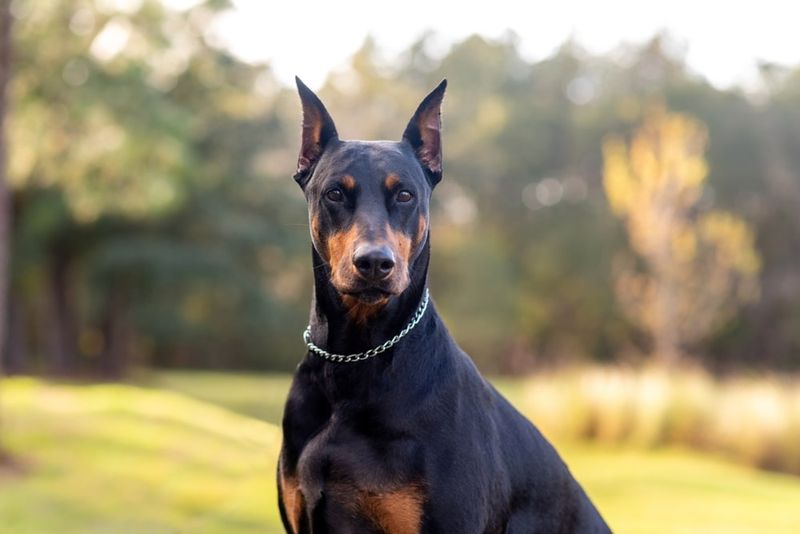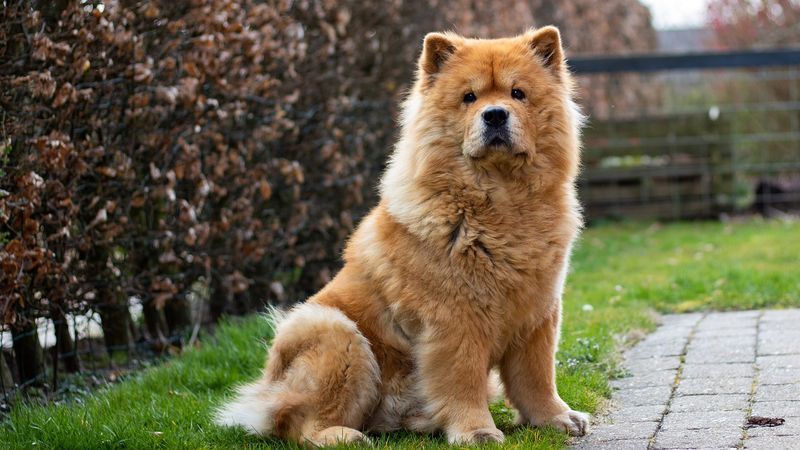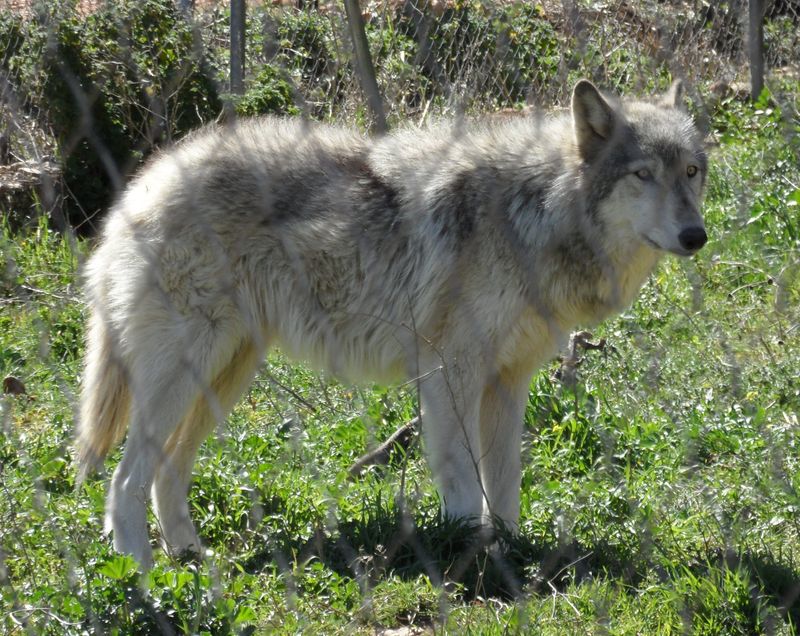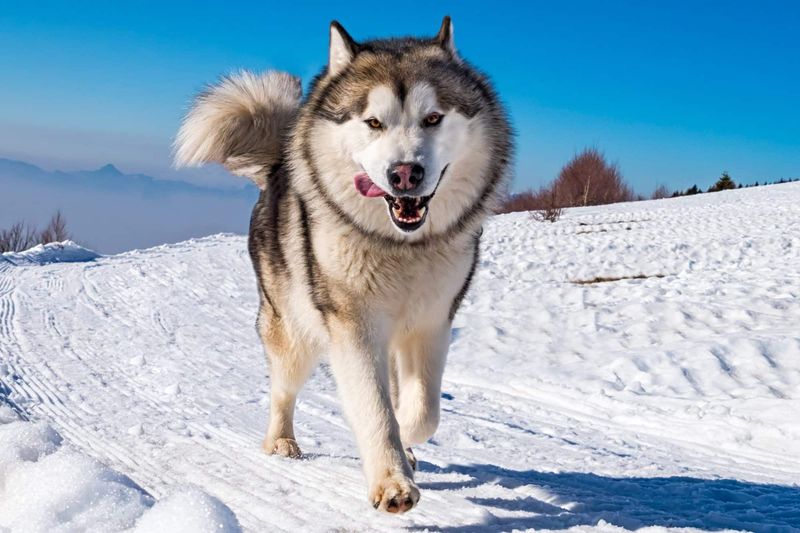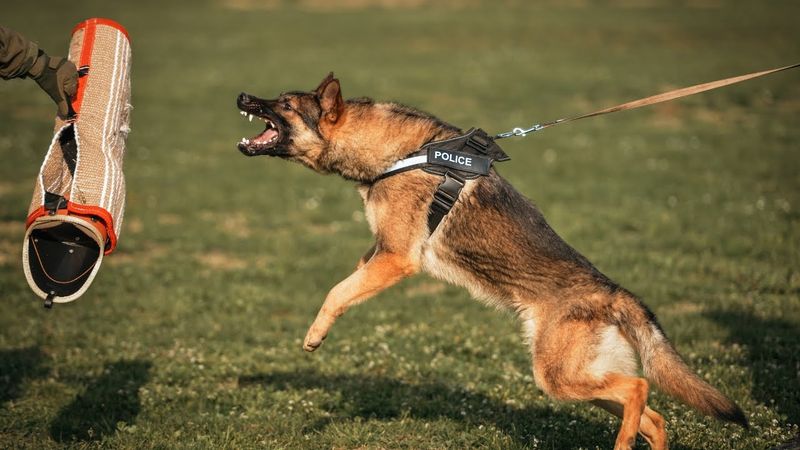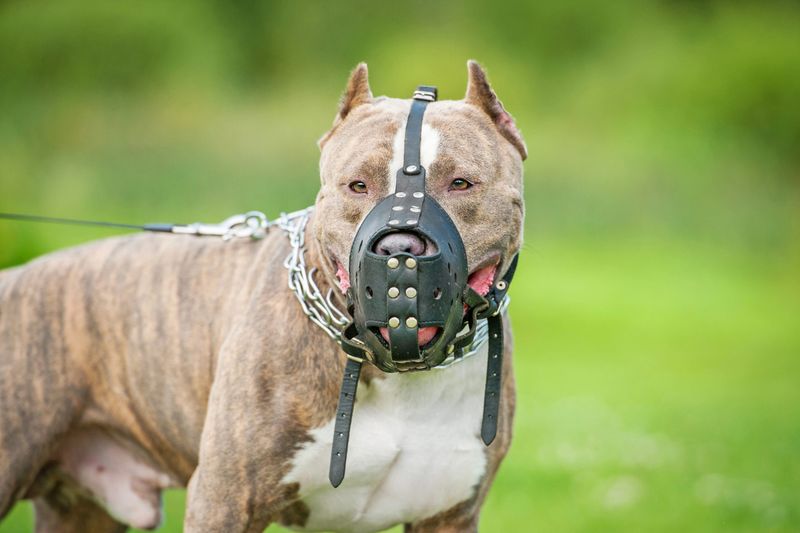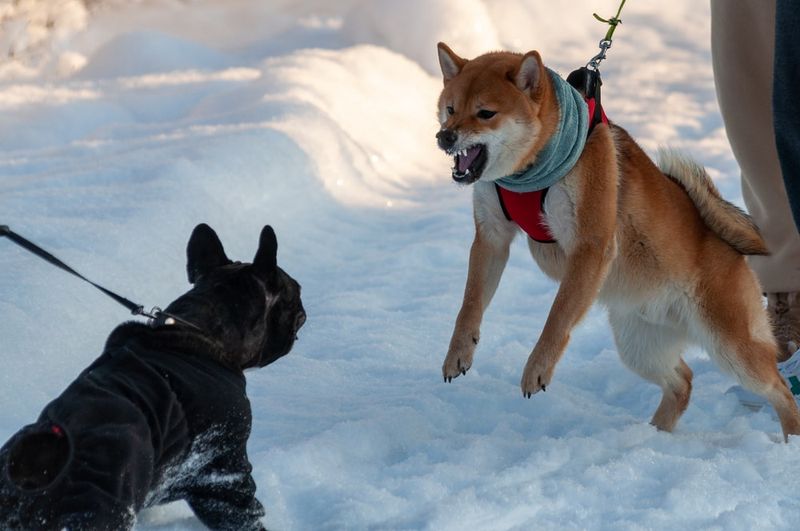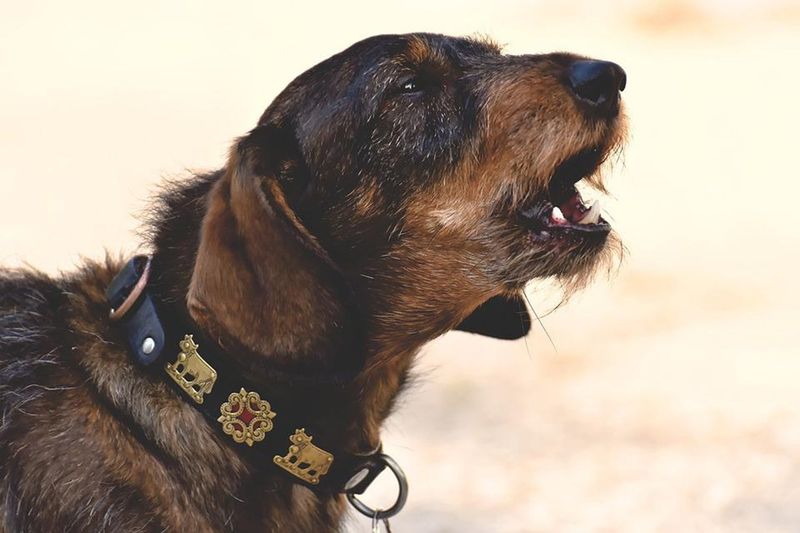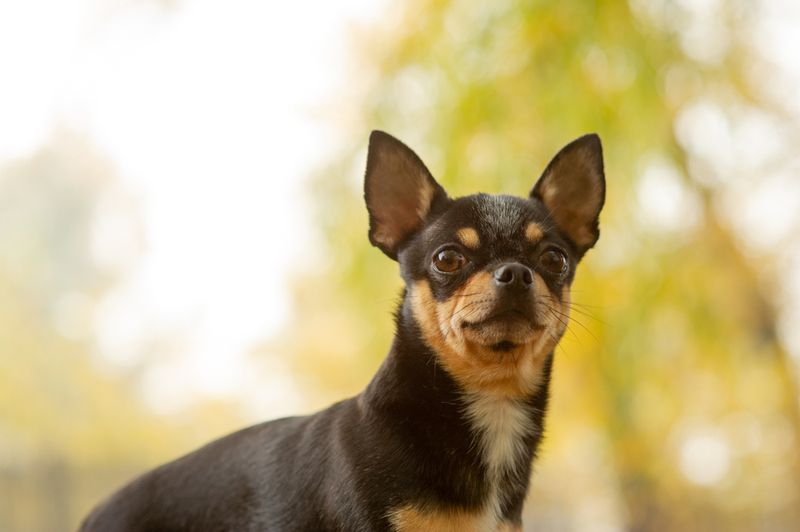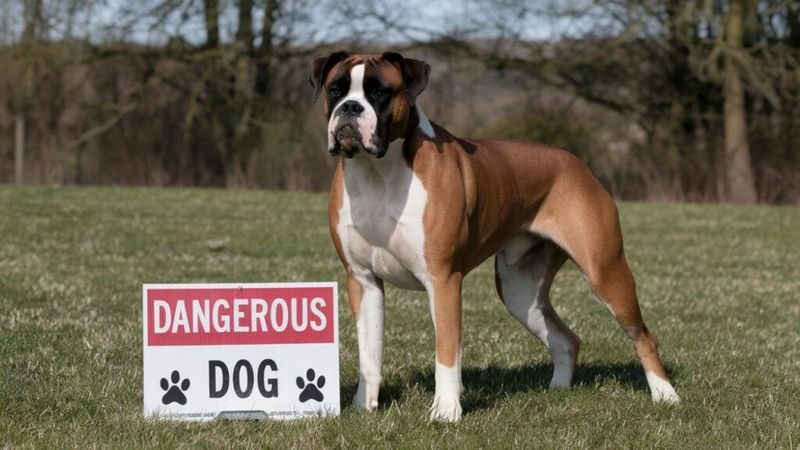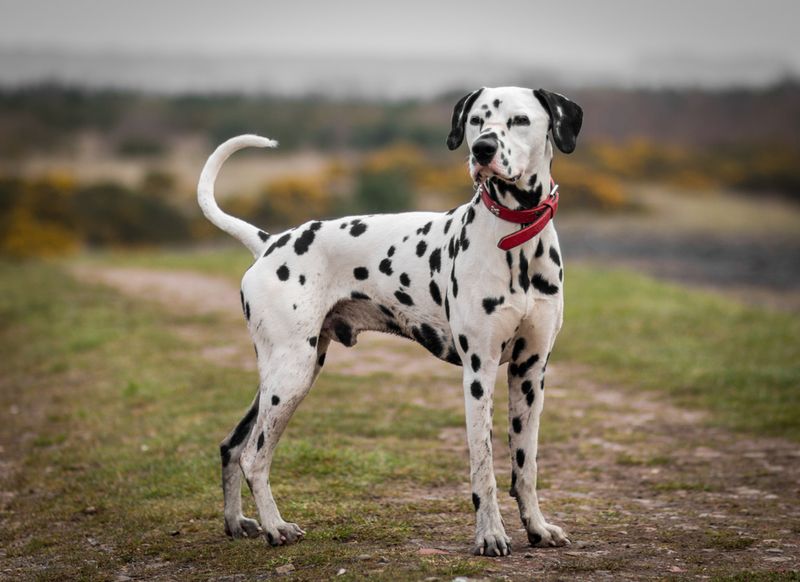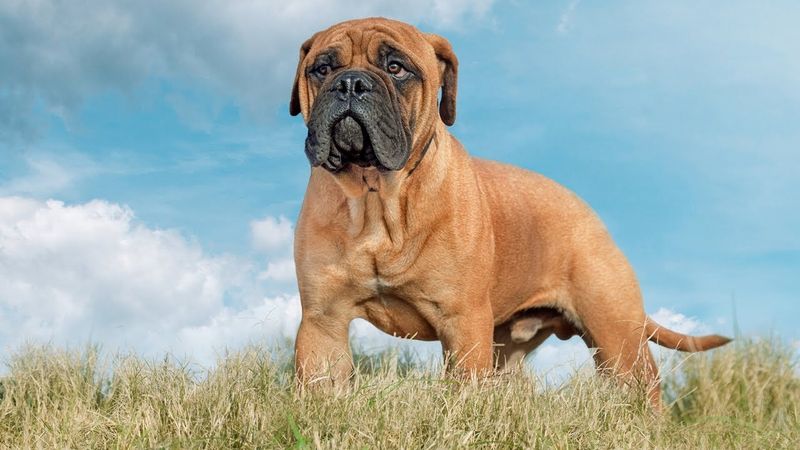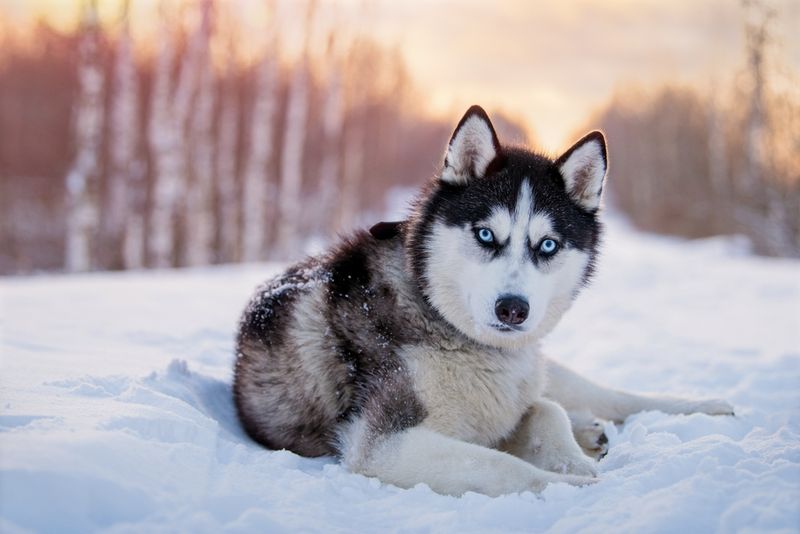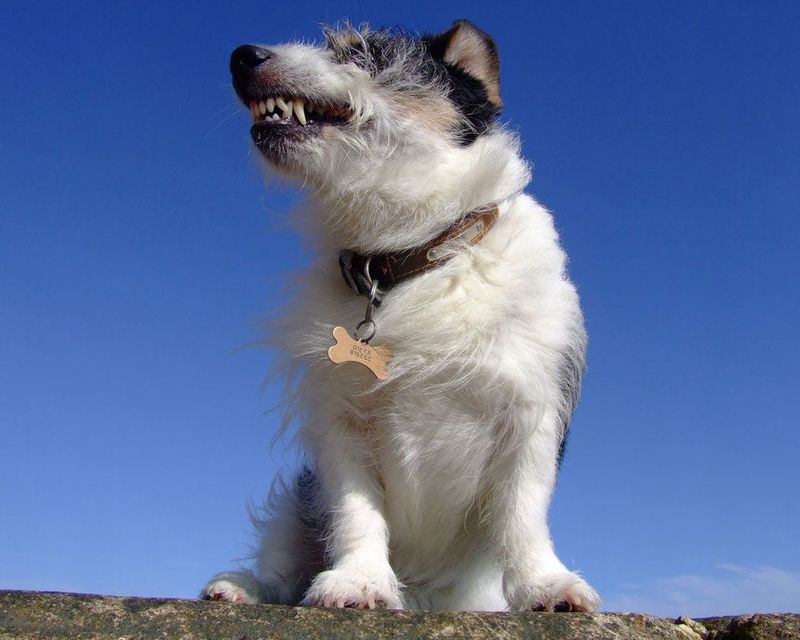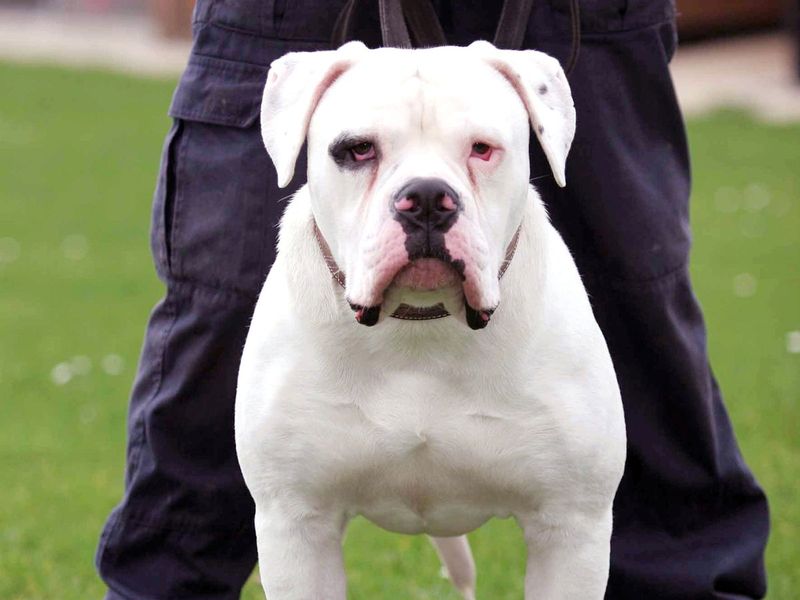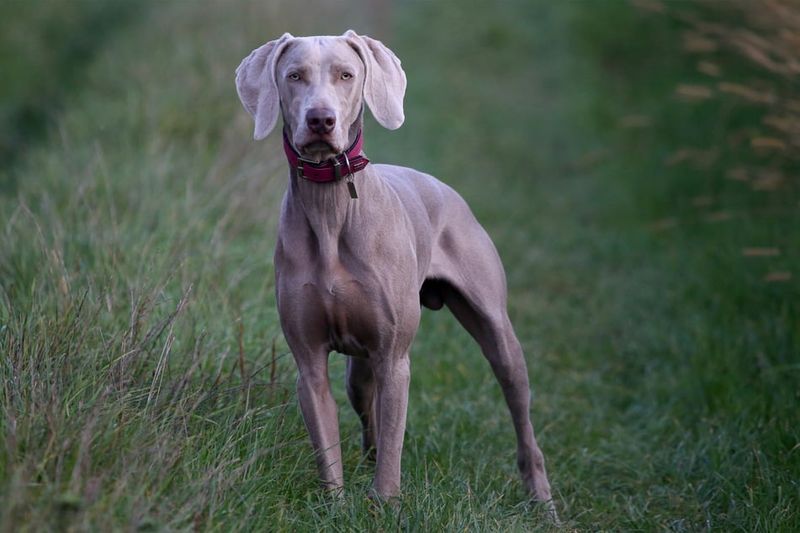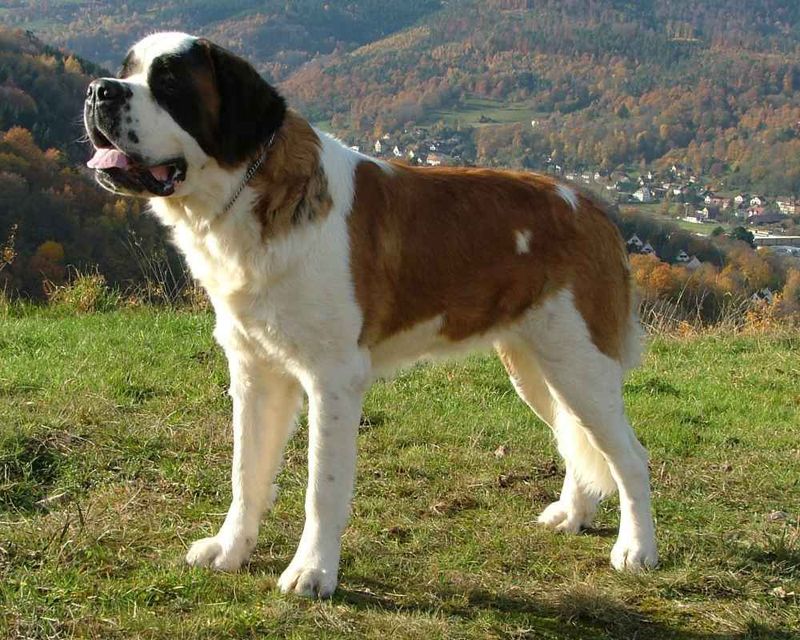While dogs are often celebrated as loyal companions and family members, certain breeds have been labeled as less suitable for households with children. These breeds may have tendencies that make them less predictable or more aggressive in family settings. It’s important to understand these characteristics when considering a family pet. This list delves into 18 dog breeds that, due to their unique traits, are not deemed family safe.
Rottweiler
Rottweilers possess a natural guarding instinct, making them excellent protectors but potentially challenging for families. Their strong-willed nature requires an experienced owner who can provide firm guidance.
Originally bred as working dogs, they can sometimes display dominant behaviors that could be dangerous in a household with children. Their protective nature, while a positive trait for some, may manifest as aggression if not managed correctly. Rottweilers need a structured environment and a consistent routine to thrive as part of a family.
Doberman Pinscher
The Doberman Pinscher is known for its intelligence and loyalty but also for its potential aggression. Originally bred for protection, they can be overly vigilant, making them less suitable for families with children.
Their need for leadership and consistent training is paramount to ensure they do not become dominant. While some may be gentle and loving, their size and strength require respect and careful management. It is crucial to socialize Dobermans early to avoid any protective aggression towards strangers or family members.
Chow Chow
Chow Chows are known for their aloof nature and distinctive appearance, resembling a lion. Their independent streak can be challenging in a family setting, particularly with young children.
The breed’s tendency to be wary of strangers and their strong protective instincts mean they require early socialization. They are not inherently aggressive but can become so if they feel threatened. Understanding a Chow Chow’s need for personal space and respecting their boundaries is key to preventing any incidents.
Wolf Hybrid
Wolf Hybrids, as the name suggests, are part wolf and part domestic dog. They carry many traits of their wild ancestors, making them unpredictable in a family environment.
Despite their fascinating lineage, these hybrids require experienced handlers who understand their complex behavior. They are not suited for families due to their wild instincts and potential for aggression. Maintaining a Wolf Hybrid as a pet involves careful consideration of their space needs and natural tendencies to roam.
Alaskan Malamute
Alaskan Malamutes are powerful, energetic dogs traditionally used for sledding. Their high energy levels demand ample exercise and mental stimulation, which can be overwhelming for some families.
Though generally friendly, their strong prey drive and independence can lead to challenges in managing their behavior around children and small pets. Training and socialization from an early age are critical to ensure a well-behaved Malamute. These dogs thrive in active households that can meet their physical demands.
German Shepherd
Renowned for their intelligence and versatility, German Shepherds are often used in police and military roles. Their strong protective instincts can be a double-edged sword in a family setting.
While many are loyal and loving, their need for a firm hand and clear leadership is crucial. Without proper guidance, they may become overly protective, posing risks in certain situations. Early socialization and training are essential to ensure they integrate well into family life.
Pit Bull
The Pit Bull, often misunderstood, is known for its muscular build and tenacity. Despite some having affectionate and loyal traits, they have a reputation for unpredictability in stressful situations. The breed’s strength and determination can sometimes lead to aggressive behavior if not properly trained.
Their history as fighting dogs adds to the challenge of ensuring they remain calm in a family environment. Some families may find them to be loving pets, but caution is always advised. Raising a Pit Bull requires consistent training, socialization, and understanding of their complex nature.
Akita
Akitas are known for their noble demeanor and loyalty to their owners. However, they also have a strong territorial instinct, which can lead to aggressive behavior towards strangers.
Their independent nature requires an experienced owner who can provide consistent training. Akitas are not always tolerant of children, especially unfamiliar ones, making them a risky choice for family homes. They thrive with early socialization and a strong bond with their family members.
Dachshund
Dachshunds, with their long bodies and playful nature, can be surprisingly aggressive, especially if not properly trained. Their hunting background means they can display dominance and stubbornness.
They have been known to snap or bite if they feel threatened or annoyed, particularly around young children. Positive reinforcement and early training are vital in curbing any aggressive tendencies. Dachshunds are best suited for families who understand their quirky personalities and can provide appropriate boundaries.
Chihuahua
Despite their small size, Chihuahuas can be surprisingly bold and assertive, often believing they are much larger than they are. Their fierce personalities can lead to aggressive behavior if not managed properly.
Chihuahuas are known for their loyalty to one person, which can result in jealousy and protective behavior towards others. They may not tolerate rough handling by children, making them less than ideal for a family setting. Socialization and gentle training are key to managing their sometimes feisty demeanor.
Boxer
Boxers are known for their playful and energetic nature, often bounding with enthusiasm. However, their exuberance can sometimes translate to rough play, making them unwittingly dangerous to small children.
Their strong build and high energy levels require consistent training and exercise to prevent behavioral issues. While they are generally affectionate, their tendency to jump and play boisterously can pose challenges in a family environment. Boxers do best in active homes that can match their lively spirit.
Dalmatian
Made famous by films, Dalmatians are known for their distinctive spots and high energy levels. Their exuberant nature requires plenty of exercise and stimulation, which can be demanding for some families.
Dalmatians have a strong prey drive and can become easily bored, leading to destructive behavior. They need an environment that can provide mental and physical challenges to keep them content. While loyal to their family, their spirited nature can sometimes lead to overexcitement around children.
Bullmastiff
The Bullmastiff’s imposing size belies its gentle giant reputation. However, their strength and protective instincts can pose challenges for families with young children.
They are naturally inclined to guard their loved ones, which can lead to overprotectiveness and potential aggression towards strangers. Bullmastiffs require firm leadership and socialization to ensure they remain balanced and trustworthy. Their calm demeanor is best suited to families who can handle their size and strength responsibly.
Siberian Husky
Known for their striking appearance and energy, Siberian Huskies are natural adventurers. Their high exercise needs and independent nature can be overwhelming for families without the time or space to accommodate them.
Huskies have a strong pack instinct and can be challenging to train, requiring an experienced owner. Their tendency to roam and escape can pose risks in a family setting. They thrive in environments where they can exercise their instincts safely and securely.
Jack Russell Terrier
Jack Russell Terriers are small but mighty, known for their boundless energy and cleverness. Their need for mental and physical stimulation can be demanding, especially for families with young children.
These terriers have a strong prey drive and can be tenacious, sometimes leading to aggressive behavior if not properly managed. Early training and socialization are crucial to prevent unwanted behaviors. Jack Russells excel in active homes where their zest for life can be appropriately channeled.
American Bulldog
American Bulldogs are known for their muscular build and affectionate nature towards their families. However, their strength and protective instincts require careful management, especially around strangers.
While generally gentle, they can exhibit dominant behavior, making consistent training essential. Their guarding nature can lead to aggression if they perceive a threat. Providing them with clear boundaries and socialization is key to ensuring they remain loyal companions without risking family safety.
Weimaraner
Weimaraners are known for their elegance and energy, often referred to as the ‘grey ghost’ for their distinctive appearance. Their high energy levels require plenty of exercise and mental stimulation to keep them balanced.
Their strong hunting instincts can sometimes present challenges in a family setting, especially with young children. Weimaraners need an environment that respects their need for activity and offers consistent training. They thrive in homes that can match their spirited nature.
Saint Bernard
Despite their gentle demeanor, Saint Bernards can be overwhelming due to their colossal size. Their sheer weight and strength can inadvertently pose risks to small children.
While they are typically gentle giants, their protective instincts may lead to overzealous guarding. They require early training to manage their behavior in family settings. Saint Bernards excel in environments where their size is considered, and their nurturing nature is appreciated.
